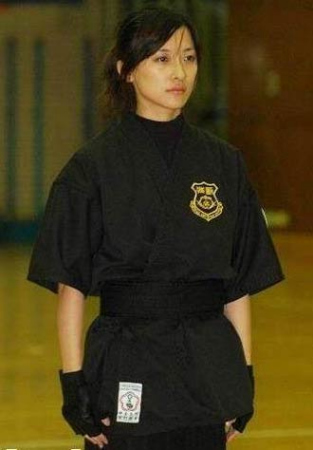|
|
双语:私人保镖在中国低调激增(图) 私人保镖在中国低调激增
Perhaps the most visible sign of the explosion of private wealth in China tries hard not to be visible at all - the private bodyguard。 They work as drivers or nannies, or blend into a businessman's coterie looking like a secretary, a briefcase carrier or a toady. Unlike bodyguards in the US, they are generally not tall and imposing; in fact, many are women, on the theory that females in the retinue attract less attention. And also unlike in the US, they are never armed, since private citizens in China are largely prohibited from owning firearms. Rather, Chinese bodyguards are martial arts experts, trained to disarm or subdue an attacker with a few quick thrusts and hand chops。 "In China, we don't need people who know guns," said Michael Zhai, president of Beijing VSS Security Consulting. "Bodyguards can use one or two blows to stop an attacker." When Zhai started his company eight years ago, aiming to serve a high-end, wealthy clientele, he recalls there were few if any competitors in the game. By the end of last year, the private security business had grown into a $1.2 billion industry with about 2,767 companies employing more than two million security guards。 The burgeoning personal protection industry is a reflection of the dramatic growth in prosperity here that has created a new class of wealthy Chinese - but that has also exacerbated the already-wide chasm between the haves and have-nots. Some experts say the booming of the security industry reflects the rich people's worry about the safety of their families and themselves。 Private bodyguards now do everything from protecting wealthy celebrities and businessmen to assisting in security for such major events as the Shanghai World Expo. That rapid growth has prompted the Chinese government to start trying to rein in the industry. Up to now, the private security firms have operated in a legal "gray area," with no guidelines, regulations or standards - and with long-established security consultants such as Zhai fretting that many are fly-by-night outfits that could tarnish the entire industry。 美国《华盛顿邮报》9月19日文章,原题:随着中国富人数量激增,保镖人数也在增加 在中国,私人财富暴增最明显的迹象大概正是富人试图努力不让人察觉的——私人保镖。 他们的工作看似司机、保姆,或者以秘书,、拎公文包者、拍马屁者的形象出现在商务圈里。与美国保镖不同,他们通常并非高大威猛、仪表堂堂。事实上,很多是女性。理论上说,女性随从不太引人 注意。另一点也与美国不同,他们从来不带武器装备,因为中国普通公民禁止拥有武器。准确地说,中国保镖是武术专家,接受的训练就是通过几记拳打掌劈就能让对方缴械投降。 “在中国,我们不需要懂枪的人。保镖要有能力通过三拳两脚就能阻止袭击者”,北京VSS保安咨询公司总裁迈克尔-翟说。翟回忆说,8年前该行业里竞争对手寥寥无几。但到去年底,据统计,中国私人保安业务已增长成为一个12亿美元的产业,有2700多家公司,雇用的保安人数超过200万。 私人保镖产业的兴起反映出中国财富的巨大增长已催生出一个新富阶层,但也加剧了业已较宽的贫富差距裂痕。专家认为,这凸显富人担忧自身和家庭的安全。 私人保镖现在所做的工作各色各样,从保护富有名人、商人到为上海世博会这样的大型活动提供安保协助。如此快速的增长也促使中国政府着手努力管理该产业。直到目前为止,私人保安公司仍处于法律“灰色地带”,没有指导原则、规定或标准。像翟的那种有长期口碑的公司则担心很多骗子公司会败坏整个行业的名声。 网友评论
企业服务 |
||||||||||||||||



